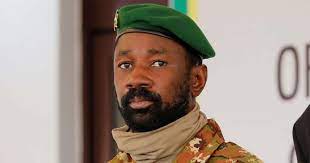The Malian government has announced the setting up of a consultation mechanism to support continuing talks with the West African regional grouping Ecowas, the African Union (AU) and the international community regarding the transition.
Are we witnessing a thaw between the Malian transitional authorities and the sub-regional organizations?
In a press release issued Wednesday, February 9, the Malian government spokesman announced the creation of a mechanism to break the deadlock in the country, which is characterized by the embargo of the Economic Community of West African States (Ecowas).
Colonel Abdoulaye Maiga, who is also Minister of Territorial Administration and Decentralization, explained that the purpose of this instrument is “to seek a solution that reconciles the aspirations of the Malian people and the demands of the international community, in particular through the adoption of a consensual timetable” for the duration of the transition.
This mechanism is structured in two groups that have already begun their work.
The first meeting of the “Ministerial Dialogue Group” was held on January 31, 2022, under the chairmanship of the Malian Minister of Foreign Affairs and International Cooperation, Abdoulaye Diop.
The “Expanded Working Group” held its inaugural meeting on February 8, 2022, chaired by the Minister of Territorial Administration and Decentralization.
He emphasized that the Malian government, “through this initiative, renews its commitment to the return to a normal constitutional order and its constant availability to dialogue and consensus for the success of the transition.”
Consensus
According to the communiqué, the mission of the ministerial-level dialogue group is to “facilitate dialogue between the stakeholders and work to reconcile positions and seek compromise on outstanding issues.”
Coordinated by Minister Abdoulaye Diop, it is composed of Ghana, which holds the current chairmanship of Ecowas, Mauritania, Nigeria, and Senegal, which has held the presidency of the African Union since February 5, as well as Sierra Leone and Togo.
Ecowas, the African Union and the United Nations are the three institutions co-opted into this first group.
For the expanded Working Group, its mission is to “make a technical assessment of the draft timetable for the transition presented to Ecowas.”
On January 9, the sub-regional organization rejected the Malian government’s proposal for a revised five-year transition period before imposing heavy sanctions on the country, which is now seeking to move beyond this situation.
This situation is detrimental to many West Africans who continue to denounce Ecowas sanctions as “unpopular measures”.
The closure of the borders with Mali within the sub-region and the suspension of trade other than basic necessities have left several actors in disarray.
“Even to say hello, we are on both sides of the border. It’s pathetic,” laments a resident of Kidira, a Senegalese town on the border with Mali.
Status quo
In addition, Colonel Abdoulaye Maiga, who coordinates the enlarged working group of the Dialogue Mechanism, will have the opportunity to seek solutions in the company of representatives of his country’s government and members of the local Transition Monitoring Committee (Ecowas, the African Union, the United Nations, Ghana and Nigeria), assisted by resource persons and competent experts, the document seen by APA stresses.
In a long technical note on Mali, two weeks ago, Ecowas tried to justify its sanctions which were highly criticized by Malian public opinion and in some countries on the continent.
Ecowas said it was only asking the authorities of the military transition to allow Malians to choose their own leaders.
Although the organization was expected to ease sanctions at its last extraordinary summit, held on February 3 in Accra, it maintained the status quo.
Wishing to banish impressions conjuring it as a “club of heads of state”, Ecowas is keen to prove that it is a respecter of the will of the people that it tries to defend, by advocating democratic elections.
ODL/cgd/fss/as/APA


